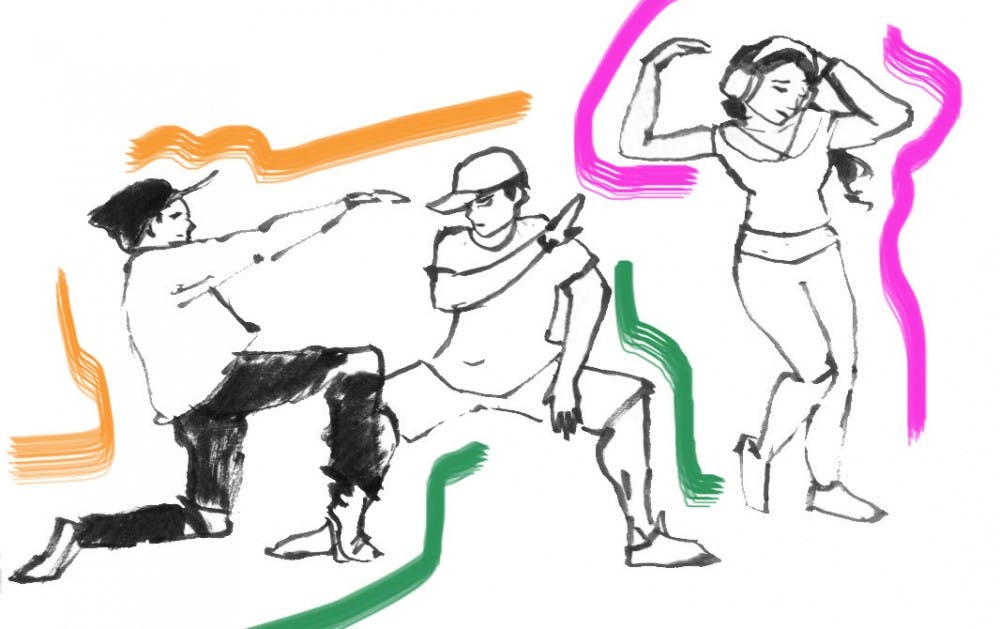With a desire to increase awareness, create discussion and elicit change on the topics of race and resegregation, ASU’s Performance in the Borderlands is bringing together workers and organizers for a interactive panel discussion from Sept. 11-12.
Over the course of the two day event, "Jeff Chang in Conversation," panelists including American Book Award winner and USA Ford Fellow in Literature, Jeff Chang, will share the stage to seek equity in new developments, emphasizing the leadership of communities of color.
In addition to being an author, journalist and hip-hop critic, Chang is also the vice president of narrative, arts and culture at Race Forward, an organization dedicated to solving complex issues involving race and bringing about racial justice.
ASU instructor and organizer of the event, Mary Stephens, said these events will explore city development and the impact it has had on the return of segregation to the U.S. She said the event will also focus on how art can be used to evoke positive change within cities where minority groups are being affected by these incoming developments.
Stephens said putting Chang in conversation with local community organizers who are "engaged in political movements around resegregation in South Phoenix" will draw attention to local action surrounding race and social justice.
Having worked extensively on the narrative around underrepresented minority groups, Chang will lead panelists and attendees, including ASU students and community members, through an active discussion on topics directly affecting Arizona residents.
“We’re gonna talk about the role and place that non-blacks play in hip-hop in relationship to black culture and (the) black freedom movement,” Chang said.
Chang said this event is an opportunity to learn more about the link between hip-hop and social change.
“We have seen, especially in Arizona, the growing polarization between different folks, and hip-hop is a really powerful force for unity and for imagining a different kind of world, and so that’s the kind of stuff we’re going to be talking about,” Chang said.
Lois Brown, professor at the Center for the Study of Race and Democracy, also encourages students to attend the event.
“It is very much a conversation with someone who's shaping our perspective on what it means to be an active member of community, what it means to think about progress and development and how we take stock of where we are and what is needed and the kind of issues that’s facing us on and off the ASU campus,” Brown said.
Brown also wanted to emphasize that the event is not a lecture.
“Part of the power of the event lies in its format that it’s going to be a conversation with a group of individuals … who bring very creative and thoughtful and deliberate perspectives,” Brown said.
Marcus White, ASU dance professor and associate of the ASU Hip Hop Research Cluster, said Chang has examined marginalized groups and the relationship between hip hop and politics throughout his career.
"Jeff Chang and his work from the very beginning and some of his earlier manuscripts, 'Can’t Stop Won’t Stop,' were really looking at these marginalized communities of these urban centers and the development of the rise of hip-hop and seeing how art and politics was speaking to (accomplish) this," White said.
White said art can be used to facilitate political discourse and change, as will be discussed in the Jeff Chang in Conversation event.
“(Art is) a beautiful thing. It makes you feel good. It’s emotionally compelling," White said. "You make art to connect with people, thinking about our humanity."
The first event, "From Hip-hop to Policy Making", will take place in downtown Phoenix at the Civic Space Park and A.E. England Building, Sept. 11 starting at 6:30 p.m.
The second of the events, "Race and Resegregation in the City," will close out the two day event on the evening of Sept. 12 at Eastlake Park Community Center, beginning at 7:00 p.m.
Kyra Trent, a senior studying interdisciplinary studies in the College of Integrative Sciences & Arts and former marketing manager for the Center of Study of Race and Democracy, said art gives a voice to the underrepresented, especially in conversation with policy makers.
She said representation and visibility through art is important beyond politics.
"I am a queer black woman and when I go out with my queer black partner I can't help but think about who is watching and what other peoples' perception is of me and us and, honestly, will I have the chance to make it home safe that day, especially in a predominantly white space," Trent said.
Public discourse sparked by artistic expression has the power to create political change, Trent said.
“If you’re interested in new creative strategies on how we think about these issues, then this is the place to be,” Stephens said.
Reach the reporters at dfbrewst@asu.edu and mzhao49@asu.edu and follow @destinyyyfaye and @michelle_zhao23 on Twitter.
Like State Press on Facebook and follow @statepress on Twitter.




